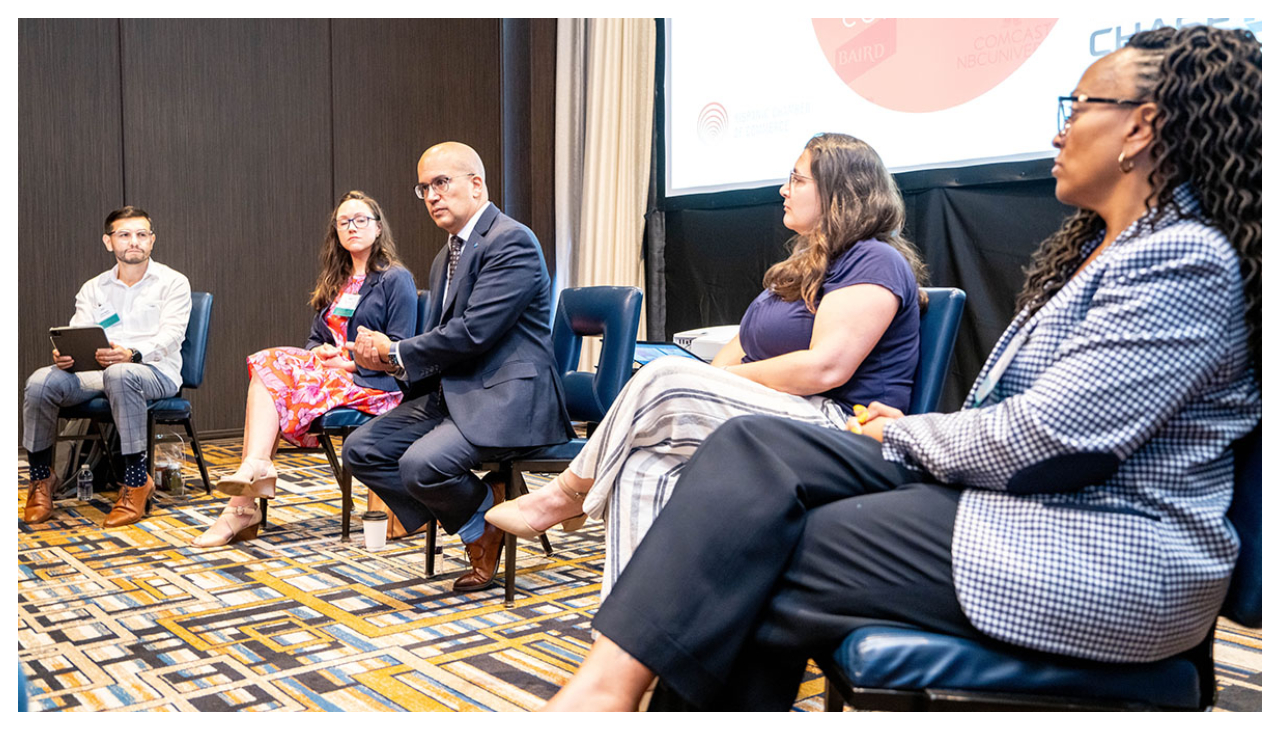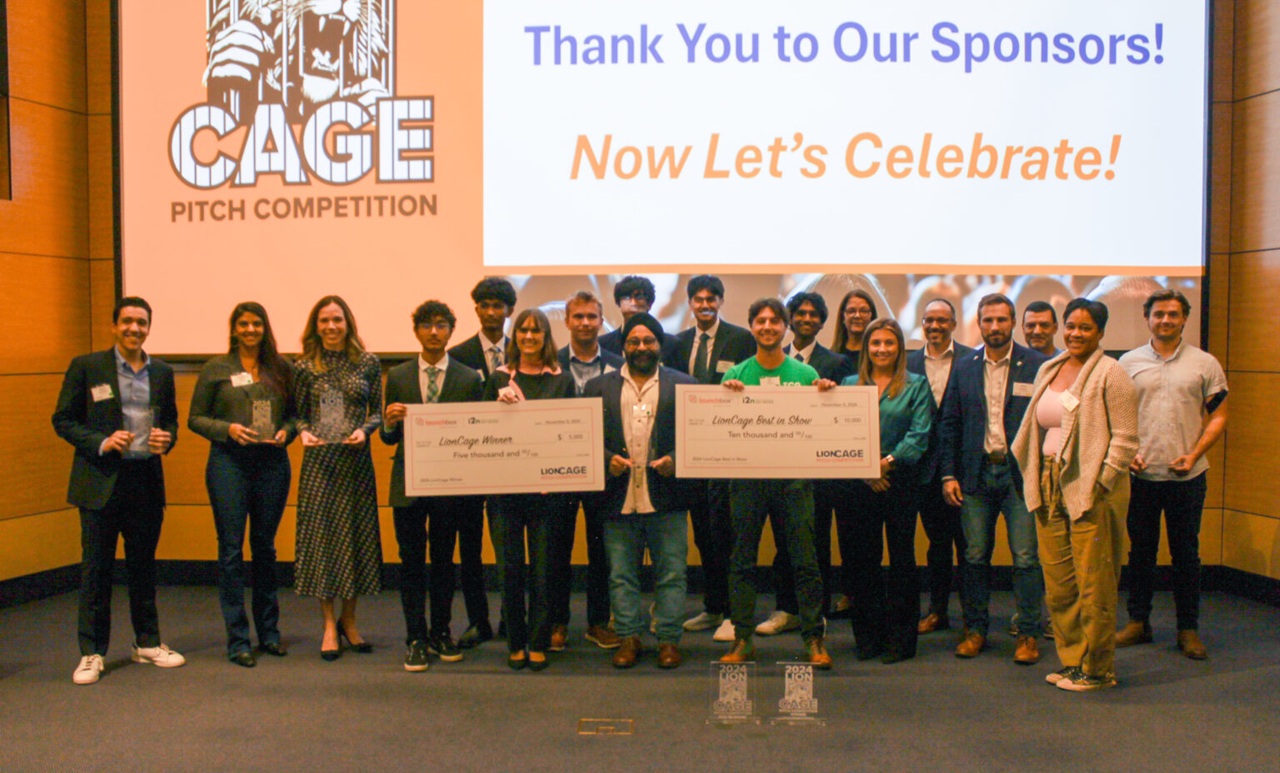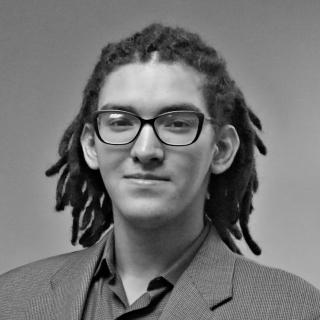
Expanding your business: learning from others
In a session hosted by the Greater Philadelphia Hispanic Chamber of Commerce, several business leaders offered insight on what trips entrepreneurs up.
On June 20, 2023, the Greater Philadelphia Hispanic Chamber of Commerce hosted a series of panels during its annual Closing the Gap Conference. The panels discussed multiple topics related to entrepreneurship and operation of a business, including the resources and institutions available to help a burgeoning business.
During this particular session, representatives from each business support organization gave insight into their own group and the services they provided.
The panel was comprised of several business insiders, including Iola Harper, a senior executive vice president with The Enterprise Center; Yael Tacher, a program manager with the Greater Philadelphia Hispanic Chamber of Commerce; Josué Figueroa, Vice President and Senior Business Banking Consultant with Chase Bank; and Jamie Shanker, the director of programs at the Temple University Small Business Development Center.
The session was moderated by Lenin Agudo, the director of the Small Business Development Center at Widener University.
The Enterprise Center provides business advisory services, equity funds to invest in diverse entrepreneur owned companies, and has interest in developing communities surrounding commercial corridors.
Harper was keen to stress that the language used by business advisors is key, such as with the term "business advisory services" being the same as "technical assistance" only that the former is more palatable to businesses seeking assistance.
As a representative of the Greater Philadelphia Hispanic Chamber of Commerce, Tacher wanted to bring attention to their 150 hour business accelerator program, Accelerate Business, whose first cohort graduated a month before the COVID-19 pandemic, yet were able to collectively create 23 new jobs.
Additionally, Tacher spoke about their Build Latino program, a Spanish-language program centered on teaching fundamentals within the construction industry.
Clearing qualifications
Before fielding questions from the audience, each panelist introduced themselves and gave a brief introduction to the work their respective organizations provide.
Shanker divided Temple Small Business Development Center's roles into two segments: consulting and training.
On the consulting side, they offer numerous services, such as a legal clinic to aid with contract review and loan lender preparation and matching.
As trainers, they host multiple virtual events and aid in becoming prepared to procure certifications based on the startup an aspiring entrepreneur seeks to launch.
Figueroa holds 30 years of experience in the nonprofit, for profit, and federal government industries, now working with JPMorgan Chase to aid businesses in taking full advantage of their opportunities.
Part of their racial equity commitment to give back includes providing free service to diverse entrepreneurs when connecting them with working capital and training them in understanding financial statements and navigating personal credit.
Answering the Audience
One audience member recalled how a Spanish-speaking client of theirs had gone to numerous banks seeking loans, only to be repeatedly declined, and wanted to know about resources that worked with institutions — like Chase Bank — that his client could be connected with.
Figueroa started by emphasizing the importance of knowing why you were declined a loan before seeking a loan from another lender.
Reasons can vary, but once they have been found, the next step is to check with multiple different banks and institutions and find which policy works best for your company before working with them.
As a member of the GPHCC, Tacher pointed to translation services they offered, including connecting them to non-Spanish translation services as well.
When asked by the moderator what problems entrepreneurs face, Harper noted that access to capital was a pain point, as having money allows entrepreneurs to resolve the majority of their problems.
For Shanker, the issue that she wanted to highlight was that diverse entrepreneurs often had issues accessing professional services, such as not having a network of trustworthy service providers or proper training.
This can include interview training to gauge potential employees properly, to giving access to lists of professional service providers in multiple areas.
RELATED CONTENT
For many small businesses, Tacher explained, they can lack information on how to apply to resources. But a factor for why they don't reach out to organizations that provide them — such as the Chamber — is that entrepreneurs can see large companies and institutions as intimidating or untrustworthy.
Tacher followed another question on how to get your message to entrepreneurs with similar sentiment, pushing back against the idea that the Hispanic Chamber of Commerce was a big institution for “men in suits.”
Part of this is because many people don't know what Chambers are, or are mistaken about what one does. Tacher emphasized that she isn't seeking out large companies like Comcast and Chase, but smaller ones; the mom and pop shops who need the help.
One member of the audience recounted their work with diverse entrepreneurs over their 47-year career, noting that it was a common habit of their clients to not report everything on their tax agendas, seeking to pay as few taxes as possible.
But the issue that arose from this was that while they received less taxes, they also were denied loans due to not proving they could make enough profit and grow enough to be eligible for the funding they sought.
Figueroa seconded this issue, referencing how oftentimes entrepreneurs wouldn't record their financial statements properly either, which would lead to an inability to prove that they could repay back loans.
The solutions he offered however, did not lie with the entrepreneurs, but with their advisory teams — their accountants, their financial advisors, or anyone who could set up their financial system so it would work with other institutions.
By keeping trusted advisers, entrepreneurs don't need to be completely knowledgeable about all financial matters and paperwork, and are less likely to make financial mistakes that will hamper their long-term growth.
Figueroa in turn has seen numerous clients looking for a "magic pill" that is both an easy solution to how to plan financially and is going to exponentially grow their revenue, using the event he was speaking at as an example.
When trying to encourage his client to come, he weighed the cost of the $35 entry fee against the five hours of information sessions and ability to network with other professionals and resource providers, but that they decided not to attend, which Figueroa views as a common mistake.
Closing out the session, Figueroa and Harper both emphasized the importance of building a team as an entrepreneur. While an entrepreneur can certainly be skilled, they don’t need to cover every base at once at the same time.
Not only is this necessary to expand, but it is essential in accessing levers of business not normally available as a single person, Harper said. Like resources to grow your company, both are vital, and can be found if you look hard enough.











LEAVE A COMMENT: